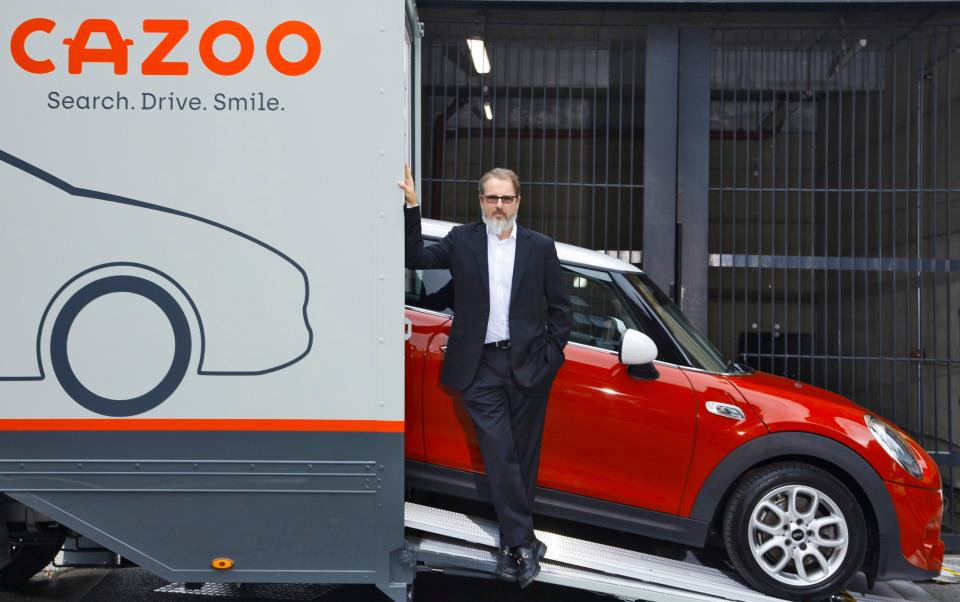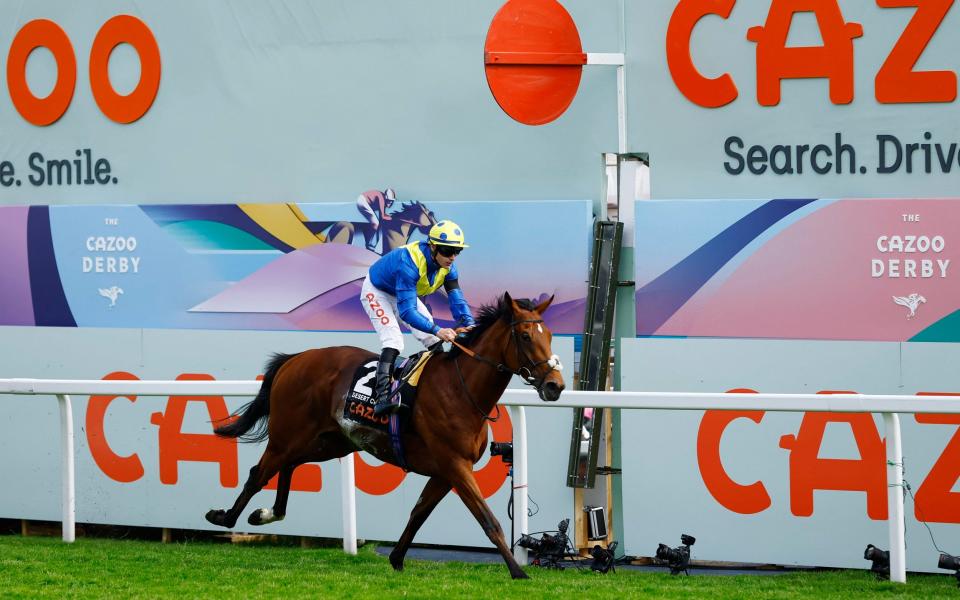The serial entrepreneur who took a wrong turn on the second-hand car boom

When Alex Chesterman launched Cazoo, the entrepreneur admitted he was imitating US business Carvana in bringing app-based car sales to Britain.
It was a bid to overtake the car market — a repeat of what his previous creations LoveFilm did to Blockbuster video, and Zoopla to property listings. The trouble Chesterman’s third act now faces, however, is that the competition has imitated him back.
Cazoo was timely launched in 2019, just before the pandemic. With locked down buyers able to deliver a used car to their door via a few clicks, it swept up the sales of dealers forced to close by restrictions.
Tens of millions of pounds of advertising spend later, and four in five UK adults know about the company.
Last week, however, Cazoo announced 750 job cuts and a hasty retreat from the new car leasing business it had only seven months ago spent £24m expanding further into, with the purchase of Spain’s Swipcar.
The company blamed a gloomy economic outlook and high inflation eating into its customers’ disposable incomes.
Yet the traditional rivals Chesterman aimed to outdo have been raking in money by offering a wider variety of services — including Cazoo’s selling point — and as a shortage of parts and cars suddenly became appreciating assets.
Used cars rose in value by 28pc in May, the 26th month of growth, according to Auto Trader, as buyers fought over a limited stock. Dealers were able to double their margins.
“If you couldn’t make record profits last year, frankly you need shooting,” says an industry source. “Kermit the frog could have made record profits last year.”
It begs the question of why Cazoo could not. Starting from scratch and competing with traditional dealers meant it had to grow quickly and spend vast sums on becoming a household name.
The company achieved 35,000 sales in 2021 and expects to make up to 80,000 this year, rivalling the larger UK networks. But that explosive growth came at a huge cost: Cazoo spent £65.2m on marketing and advertising in 2021, according to its accounts.
It is also the shirt sponsor of English premier league football teams Everton and Aston Villa and has bought advertising space at golf, horse racing and snooker tournaments.

Insiders insist the spending has paid off, with more than 80pc of Britons having heard of Cazoo. But sales of £668m and costs of £643m, plus the giant marketing spend, helped tip the company into a £330m loss.
One problem is Chesterman entered an intensely competitive market.
While he achieved success with Zoopla, which enjoys a near duopoly with RightMove, and LoveFilm, which hoovered up many rivals to become dominant in the UK before being sold to Amazon, the used car market is vast and has many players scrapping over customers.
Cazoo has warned investors “there are approximately 15,000 used vehicle dealers in the UK and approximately 67,000 across France and Germany. No dealership group across the UK, France and Germany has a share of the market greater than 3pc.”
Savvy buyers are able to comb through freely available online listings of cars on Auto Trader or Parkers to find the best price.
In a normal year, a car dealer can count on a margin of about £1,250 per car sold. While the pandemic yielded profit margins of double that, rising household bills and gloomier economic headlines may soon prompt the end of that heyday.
This likely spells bad news for margins and UK car prices, which dealers expect to slowly decline.
Another challenge Chesterman faces is supply. Other than buying its used cars directly from drivers wanting to sell, who themselves will shop around for the best price, Cazoo’s other big source of stock is auctions.
Here, it must pay the highest price or miss out on the car — a further squeeze on profits.
In an attempt to access more stock, Cazoo bought Imperial Car Supermarkets in 2020, one of the UK’s largest used car retailers. Yet rivals have made similar moves, with private equity-backed Constellations buying a 20pc stake in used car dealer Lookers earlier this year, following an acquisition of then-named British Car Auctions (BCA) in 2019.
Limited profit per car, constrained supply and access to new stock are all bad signs, but there is also evidence consumers are shying away from app-only car buying. Rivals have cast their net wider.
Cazoo’s model, plus a 90-day warranty, a seven-day money back guarantee and no haggling, proved attractive for locked down customers with little choice amid the pandemic.
Now, however, it seems the chance to take a motor for a spin before signing on the dotted line is too tempting.
Mark Raban, chief executive of Lookers, the UK’s second-biggest dealer, says: “Some people will buy a car entirely online but it’s one of the biggest purchases most people make so it’s no surprise that it’s still the preference for the vast majority to visit a dealership to kick the tyres and go for a test drive – and that’s not going away.”
Meanwhile, Robert Forrester, chief executive of Vertu Motors, has said only 900 of its 89,000 used car sales were made completely online last year.
Vertu set up online buying in 2017 and has been quickly followed by most other rivals, says Ian McMahon, a partner at UHY Hacker Young who has been advising car dealerships for more than 20 years.
“Everybody can do it,” he says, “All they've had to do then is invest in the online platforms, upgrade what they do so that it can be done with a click of a button rather than a swipe of a pen. And then they’ve pretty much got what Cazoo launched with.”
As car dealers caught up, McMahon argues Cazoo may have lost its edge.
Chesterman, who declined to comment for this story, has previously resisted this argument, pointing to growing sales.
When it listed in the US through a so-called special purpose acquisitions vehicle (Spac) last year, Cazoo raised $1bn to value it at $8bn (£6.4bn). Since then it has lost almost 90pc of its value since, with a current market valuation of $877m.
Those close to the company point to the general slowdown in tech stocks. New York’s Nasdaq index has shed 24pc of its value since the start of the year.
But at the same time, large rivals including Lookers and Pendragon have gained in value.
Most of these big British dealers sell both new and used cars. Not only does it mean a friendly relationship with car manufacturers, it provides a steady stream of used vehicles that Cazoo does not have as customers return purchases to be resold.
Larger chains will also often offer servicing and repairs, a useful buffer and much needed by the 68pc of Britons who travel to work by car. Without that, Cazoo looks like a “one trick pony” says McMahon.
Chesterman has shown a flair for timing before, bagging £20m when LoveFilm was sold before physical DVDs slipped into terminal decline. His rivals grudgingly refuse to write him off and he remains bullish.
In delivering a cost cutting plan last week, Chesterman told investors: “This economic shakeup will separate the ultimate winners from the rest of the pack.”

 Yahoo Finance
Yahoo Finance 